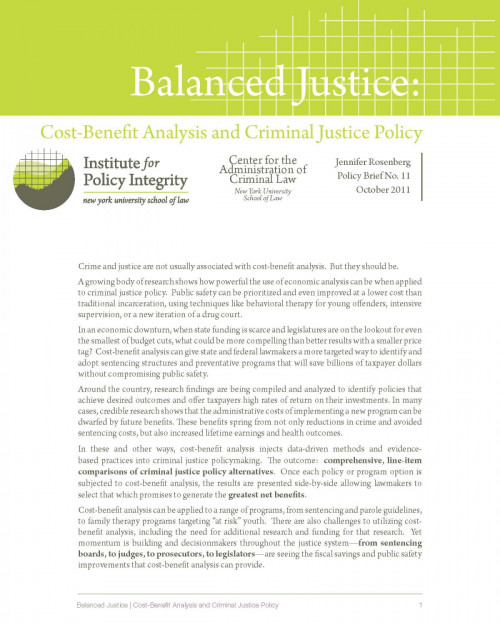Crime and justice are not usually associated with cost-benefit analysis. But they should be, according to new research. This is especially true in an economic downturn, when government funding is scarce. In “Balanced Justice,” released jointly with the Center for the Administration of Criminal Law, author Jennifer Rosenberg reviews a growing body of research showing that counting the costs and benefits of our nation’s justice system can highlight areas of improvement that can save billions of taxpayer dollars without compromising public safety.
Instead of incarceration, behavioral therapy for young offenders is saving Washington State money and keeping citizens safer. In Hawaii, intensive supervision is keeping parolees out of expensive penitentiaries and keeping cash in state coffers. And all over the country, drug courts have proven cost-effective alternatives to standard prison sentences, lowering recidivism rates and earning taxpayers sizeable returns on investment.
These results show how powerful the use of economic analysis can be when applied to criminal justice policy. Many of these initiatives cost less than incarceration and future benefits can dwarf the administrative costs of implementing new criminal justice programs.

